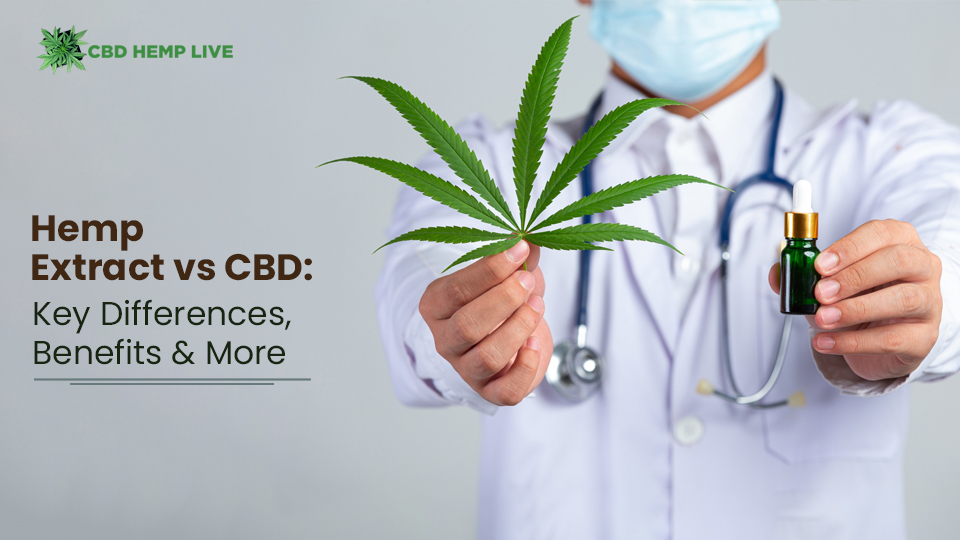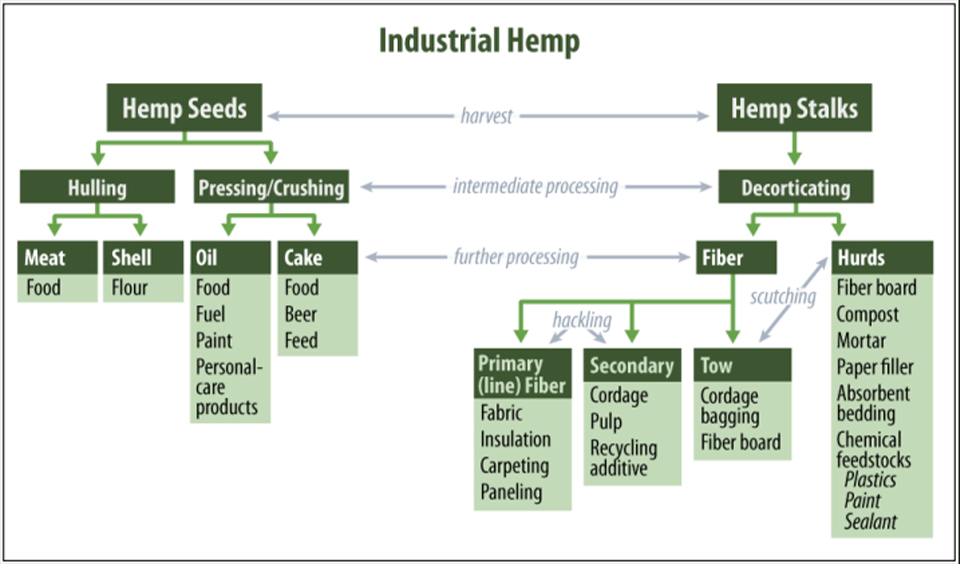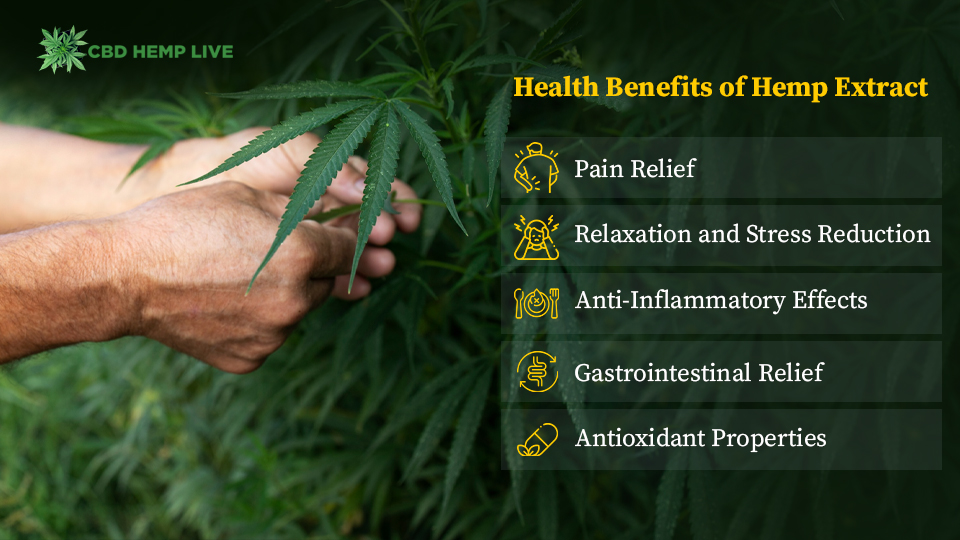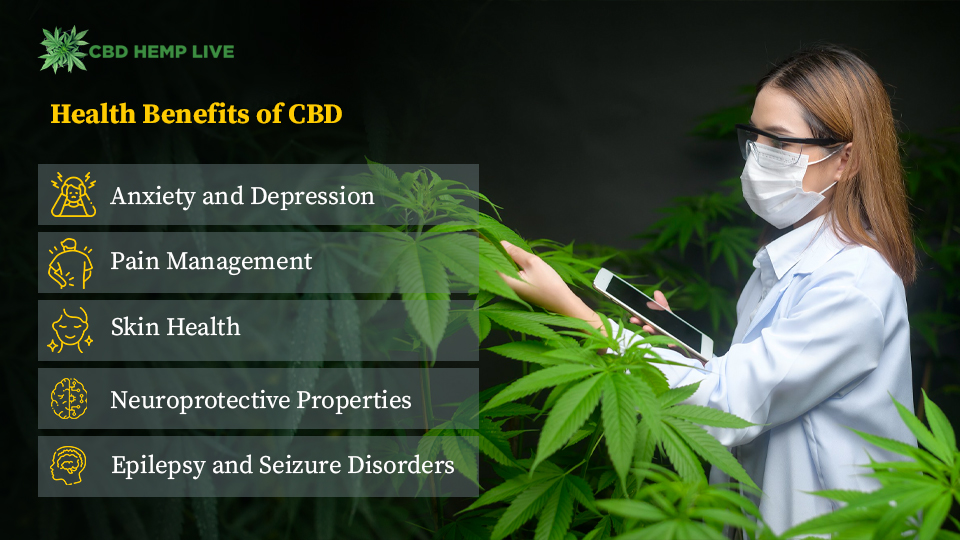
- Cannabis
-
by @admin
If you are new to CBD wellness, you may have many questions. Many terms are used interchangeably, although they are not technically the same. Hemp plants create various products, and CBD is very versatile. However, not every hemp product contains CBD, not every CBD product contains hemp. It’s pretty confusing, isn’t it? In this blog, we’ll explain the concept of hemp extract vs CBD oil, how it affects your health, what benefits you can get from it, and more.
What Is Hemp?
Hemp is a type of cannabis plant. The term hemp describes a plant’s amount of THC (tetrahydrocannabinol). A hemp plant contains less than 0.3 % THC (Tetrahydrocannabinol) based on its dry weight. On the other hand, a plant with 0.31 % THC or more THC is considered cannabis. Hemp has a low THC cut-off, so it is legal at the federal level. Industrial hemp farmers can cultivate one of the most versatile crops in the world.
Hemp fiber is used in paper, housing materials, clothing, textiles, ropes, food, wellness products, and more. Hemp extract is derived from hemp seed, and hemp oil is derived from whole plants. Moreover, if you are into the hemp business and want to grow sales fast, refer to our hemp SEO services to make it effective. Keep reading to learn hemp oil extract vs CBD oil and its benefits.
What Is Hemp Extract?
The hemp plant contains a concentrated liquid called hemp extract. It’s a broad term for any compound extracted from the hemp plant. It can include various cannabinoids, terpenes, flavonoids, and other phytochemicals found in hemp.

Source: CRS, adapted from D. G. Kraenzel et al., “Industrial Hemp as an Alternative Crop in North Dakota,”
This extract may contain not only CBD (cannabidiol) but also other cannabinoids such as CBG (cannabigerol), CBC (cannabichromene), CBN (cannabinol), and trace amounts of THC (tetrahydrocannabinol). Hemp extract is usually obtained through different extraction methods, such as CO2 or ethanol, and is used in various products, including CBD oil. Additionally, if you are into the hemp extract business and want to grow your sales faster, refer to SEO for cannabis to make your strategy effective.
Health Benefits of Hemp Extract:

— Pain Relief:
Hemp extract is rich in cannabinoids such as CBG and CBD. CBG and CBD are well-known for their pain-relieving properties. Studies have shown that these cannabinoids interact with our body’s endocannabinoid systems, affecting inflammation, pain perception, and immunity. This makes hemp extract a potential treatment for chronic neuropathic and arthritis pain.
— Relaxation and Stress Reduction:
Some hemp extract ingredients, such as cannabidiol (CBD), have promoted relaxation and reduced stress and anxiety. It is thought that CBD may interact with serotonin receptors, which play a role in mood regulation. This is why some people use hemp extract products to treat anxiety and sleep issues.
— Anti-Inflammatory Effects:
CBD (cannabidiol), one of the cannabinoids in hemp extract, has been shown to act as an anti-inflammatory. This is important because inflammation is linked to various health issues, including autoimmune diseases and some skin conditions. If hemp extract helps reduce inflammation, it may help reduce symptoms and improve your overall health.
— Gastrointestinal Relief:
The anti-inflammatory properties of hemp extract may also work on the gastrointestinal tract, which could help people with inflammatory bowel disease (IBD) such as Crohn’s disease and Ulcerative colitis.
— Antioxidant Properties:
Hemp extract has a bunch of antioxidants that help fight against oxidative stress in your body. These antioxidants are important because they help break down free radicals that can damage your cells and cause various health problems.
What Is CBD Oil?
CBD oil, on the other hand, specifically refers to an oil that is predominantly rich in CBD (cannabidiol) and is typically derived from hemp extract. Cannabidiol or CBD, is one of over 100 cannabinoids naturally occurring within the Cannabis Sativa plant. CBD is one of the most abundant cannabinoids found in the hemp plant.
Various CBD oil formats include vape oil, tinctures, and capsules, which are commonly used for their proven healing benefits, such as:
- Stress relief
- Pain management
- Relaxation
- Medical condition treatments such as epilepsy, schizophrenia, multiple sclerosis, and arthritis
- Anxiety reduction
- Sleep aid
It is known for its potential health benefits, such as supporting relaxation, reducing anxiety, and alleviating pain and inflammation. In many cases, CBD oil is made by isolating or concentrating the CBD from the hemp extract and then diluting it with a carrier oil, such as medium-chain triglyceride or hemp seed oil.
Regarding product labels, you should know that there are different kinds of CBD oils depending on what kind of cannabinoids they contain:
- Full-spectrum CBD oil contains CBD, among other cannabinoids, including THC
- CBD Isolate are pure CBD, with no other cannabinoids, such as THC
- Broad-spectrum CBD oil contains CBD, among other cannabinoids, with no THC
These oils are widely used in consumer products like drinks, cosmetics, and pet food. Keep reading about hemp oil extract vs CBD oil & its benefits to know how it can help you.
Health Benefits of CBD:

— Anxiety and Depression:
CBD’s impact on the endocannabinoid system may contribute to its anxiolytic and antidepressant effects. Research suggests that CBD can positively influence serotonin receptors, helping to reduce anxiety and symptoms of depression. However, more extensive clinical trials are needed to establish its efficacy fully.
— Pain Management:
CBD is often praised for its potential pain-relieving properties. Several studies have indicated that CBD can interact with pain receptors and neurotransmitters, reducing pain sensitivity. It has alleviated chronic pain conditions, such as multiple sclerosis-related spasticity and neuropathic pain. — Skin Health: <H3>
Topical CBD products have gained popularity for their potential benefits in managing various skin conditions, such as acne, psoriasis, and eczema. CBD’s anti-inflammatory properties and ability to regulate sebum production are believed to contribute to these effects.
— Neuroprotective Properties:
CBD has demonstrated potential neuroprotective effects, which may help protect brain cells from degeneration. This has prompted interest in its potential application in neurodegenerative diseases like Alzheimer’s and Parkinson’s.
— Epilepsy and Seizure Disorders:
One of CBD’s most popular uses is for treating certain types of epilepsy. For example, the FDA-approved CBD-based drug (Epidiolex) is a purified CBD formulation that has been clinically proven to improve seizure frequency and severity in children with severe epilepsy (Dravet syndrome) and Lennox-gestalt syndrome.
Important Note: CBD and hemp extract are not medications, and their effectiveness may vary from person to person. It is crucial to consult with a qualified healthcare professional or your doctor for specific medical conditions to determine the most suitable treatment plan. Moreover, if you are into the hemp business and want to grow sales fast, refer to our CBD SEO services to make it effective. Keep reading to learn hemp oil extract vs CBD oil and its benefits.
Is Hemp Seed Oil The Same As Hemp Extract Or CBD Oil?
No. Hemp seed oil is also derived from hemp and is widely used in many food, health, and beauty products, but it doesn’t contain CBD and has not been proven to have any medicinal/therapeutic value. Hemp extract is derived from the entirety of the hemp plant and its aerial components and contains a broad spectrum of cannabinoids (including Cannabidiol (CBD)), terpenes, and flavonoids.
Hemp Extract vs. CBD
The main difference between hemp oil extract vs CBD oil is that hemp oil has little to no CBD. Hemp Oil is produced by cold-pressing hemp seeds into an oil rich in omega-3 fatty acids. CBD oil is produced by extracting the active ingredient cannabidiol (CBD) from a hemp plant’s leaf, flower, and stalk. However, hemp extract and CBD oil have their own health benefits. Hemp extract and CBD oil are related terms, but they are not exactly the same. Here’s the difference below you should read:
Feature |
Hemp Extract |
CBD |
| Definition | A broad term for compounds extracted from the hemp plant | Specific cannabinoids derived from hemp extract |
| THC Content | May contain trace amounts of THC (less than 0.3%) | Typically THC content is further reduced or removed |
| Composition | Contains multiple cannabinoids, terpenes, and phytochemicals | Predominantly rich in CBD |
| Intended Use | Utilized in various products, including CBD oil | Mainly used in CBD oil and other CBD-focused products |
| Health Benefits | Provides a wide range of potential health benefits | Primarily associated with pain relief and relaxation |
| Legal Status | Legal in most countries, subject to THC restrictions | Legal in many countries, subject to THC restrictions |
| Drug Testing | Possibility of triggering a positive THC drug test | Generally less likely to trigger a THC drug test |
| Extraction Methods | Extracted using various methods like CO2 or ethanol | Isolated or concentrated from hemp extract |
| Entourage Effect | It may exhibit the entourage effect due to multiple compounds | It may lack the full entourage effect |
When Should You Use Hemp Extract?
For those who are comfortable with THC, hemp extract is a great wellness tool. You can use hemp extract regularly if you’re comfortable taking THC products as your doctor prescribes. Hemp extract won’t cause you to be drowsy, but it introduces THC into your body. Hemp extract may disqualify you during drug testing if you participate in a sport violating WADA (World Anti-Doping Agency) guidelines.
Some people find that the side effects of hemp extract differ from CBD isolate (i.e., pure CBD, with no other cannabinoids such as THC). The other cannabinoids may produce their effects, changing the entire experience. If you’re new to hemp extract, it’s best to start with a small amount and see how you feel. Over time, you’ll understand how much you need and when to take it to experience the benefits. The effects may become noticeable for most people in less than an hour.
To Sum Up
Now you know the details regarding hemp oil extract vs CBD oil. To recap, hemp extract is a broader term encompassing all the compounds extracted from the hemp plant, including CBD. CBD oil, on the other hand, specifically refers to a product that primarily contains CBD derived from hemp extract, often mixed with a carrier oil for easy consumption.
It’s essential to read product labels and descriptions carefully to understand what is contained in each product and the concentration of CBD present. Additionally, purchase from reputable cannabis brands/dispensaries to ensure product quality and adherence to legal FDA regulations. Consult your health professional before taking any kind of CBD or hemp extract medication, as the effects can vary from person to person.
Frequently Asked Questions: Everything You Need To Know
Are hemp extract and CBD oil the same?
Hemp extract and CBD oil are sometimes the same thing. “CBD oil” is a broad term for many liquid CBD products. These products aren’t always hemp extract. CBD oil is extracted from the cannabis plant’s flowers, leaves, and stems. Hemp seed oil, on the other hand, uses extracts from cannabis plants’ seeds.
Does all hemp extract contain CBD?
If industrial hemp is the source of the extract, it does not contain CBD or THC, according to Bissex. Hemp extract may, however, contain other cannabinoids as well as plant compounds that act on our endogenous cannabinoid system, which controls brain, immune and hormonal functions.
Is hemp oil the same as hemp extract?
Hemp extracts and hemp oil are two hemp-derived products with many potential health benefits. While both are derived from the same hemp plant, the two products have different uses and effects on the body.
Will CBD get you high?
No, CBD will not get you high as CBD is another one of the many compounds found in cannabis sativa plants (in both hemp and marijuana), with no psychoactive properties.
When should I take hemp extract?
For general health and wellness, it is recommended to take hemp oil once or twice a day. It is best to take it simultaneously each day to maintain consistent levels in the body. Taking it with food may help reduce any potential side effects.
Is hemp extract the same as CBD isolate?
CBD isolate (i.e., pure CBD, with no other cannabinoids like THC). In contrast, hemp extracts display a broader variety of bioactive, including terpenes, many types of CBD, and other phytocannabinoids such as CBC, CBCV, CBG, CBGM, CBGV, CBL, CBE, CBN, CBT, CBV, and THCV.
Is CBD made from marijuana or hemp?
CBD can be extracted from both hemp & marijuana. However, since marijuana is still illegal in most states, most CBD products on the market are derived from hemp.
What medications should not be taken with hemp oil?
As per the National Library of Medicine, CBD has been reported to interact with several anticonvulsant drugs, including diazepam, lamotrigine, and phenytoin 28,29; sedative drugs, which include barbiturates such as phenobarbital and hexobarbital30; and narcotics such as codeine and morphine.
Does hemp extract help with pain?
That study concluded, “CBD may also be a safe and effective neuropathic OA joint pain treatment. Also, CBD oil efficiently treats multiple sclerosis, cancer, and fibromyalgia pain.
Can hemp oil affect your liver?
According to the Food and Drug Administration (FDA), CBD could cause liver damage. They reviewed Epidiolex, a drug containing Cannabidiol (CBD) to treat seizures. During the review, the FDA concluded that administering higher doses of CBD without appropriate medical supervision could result in liver injury.
